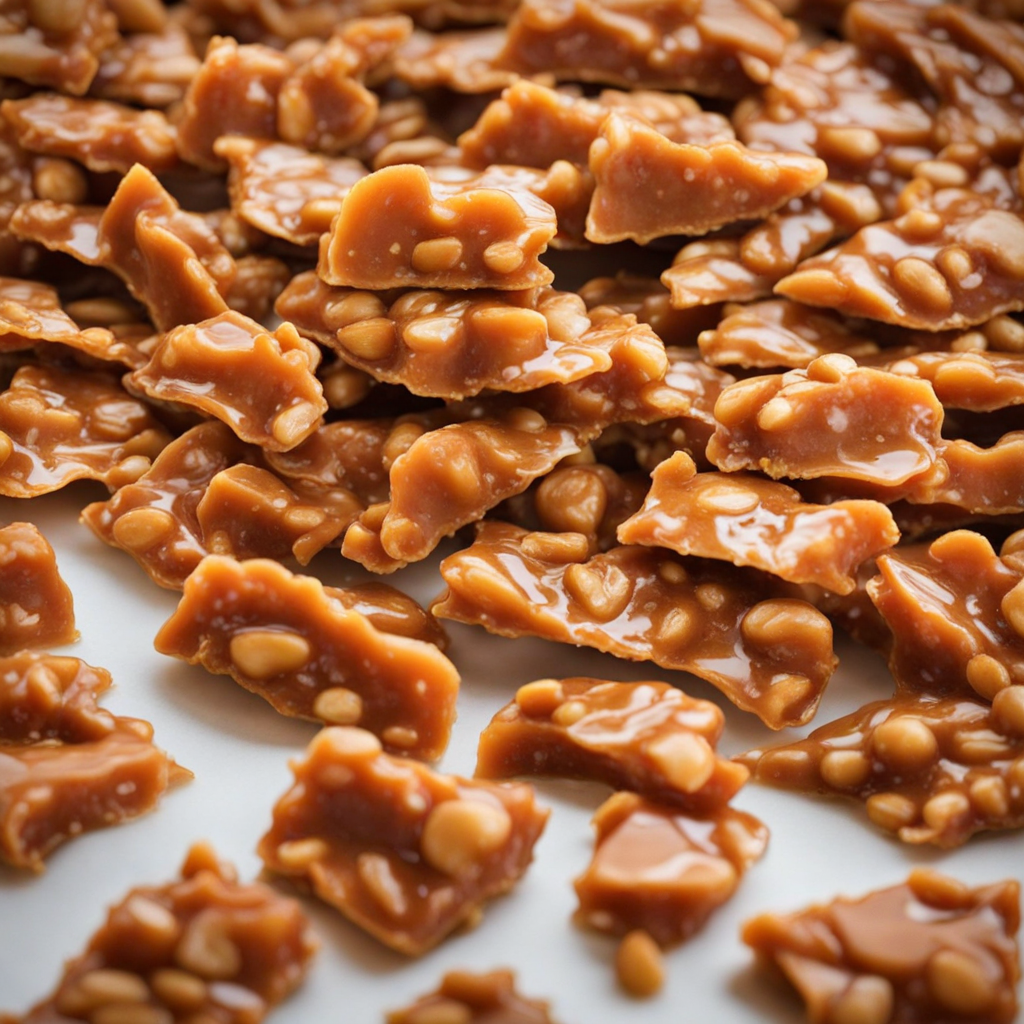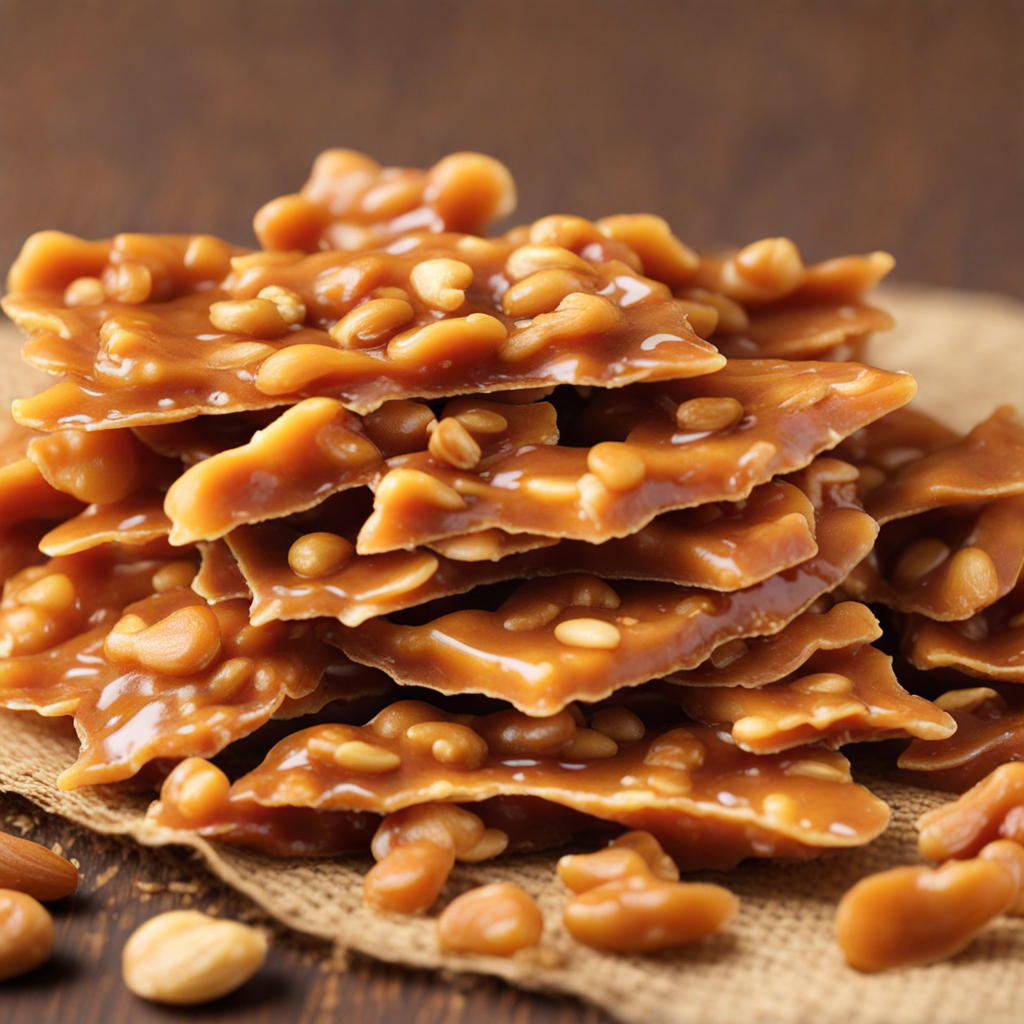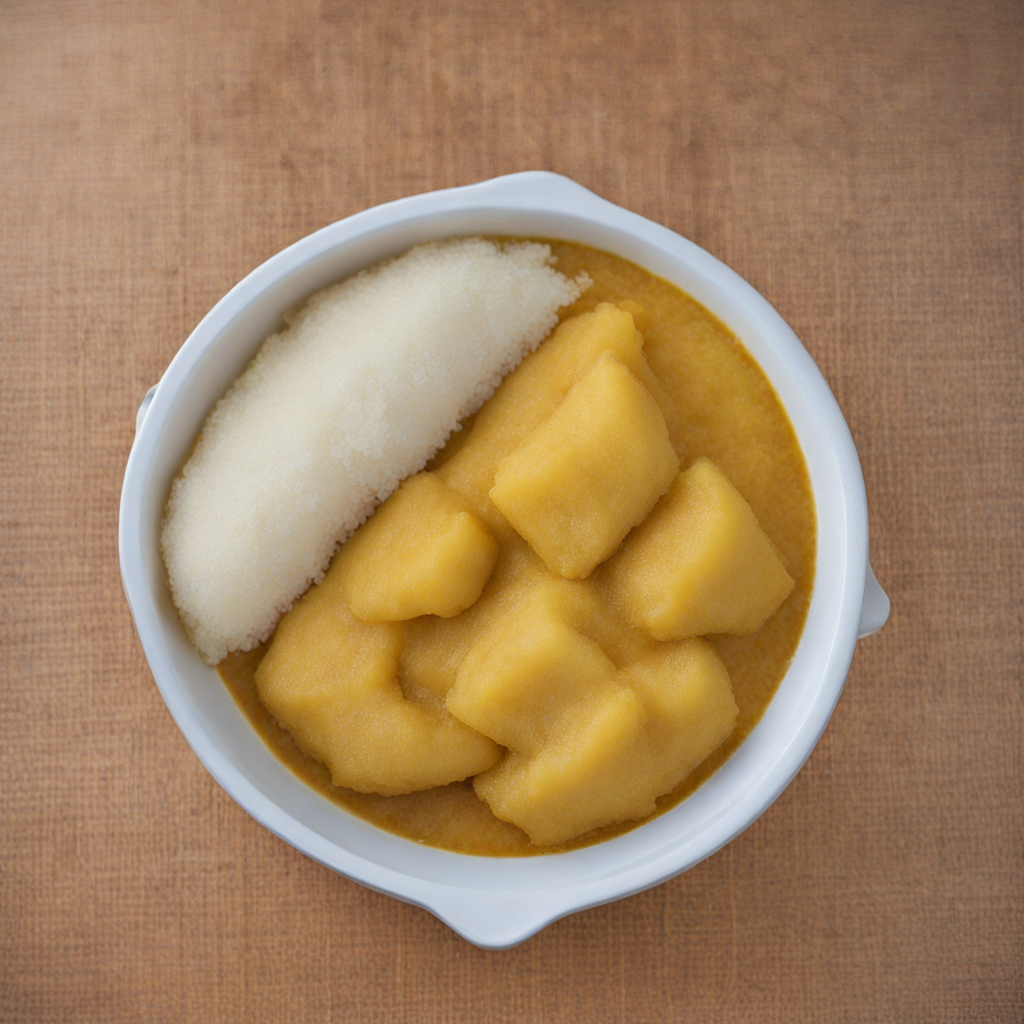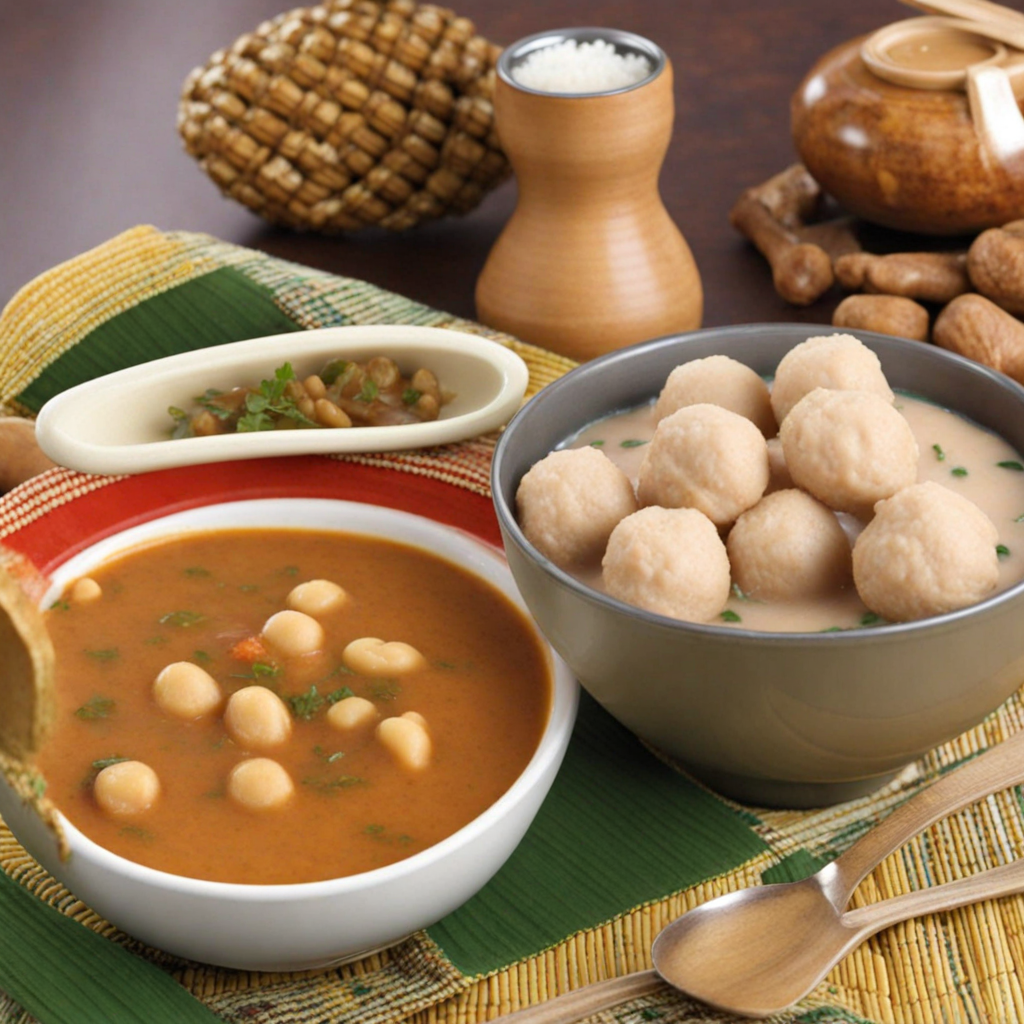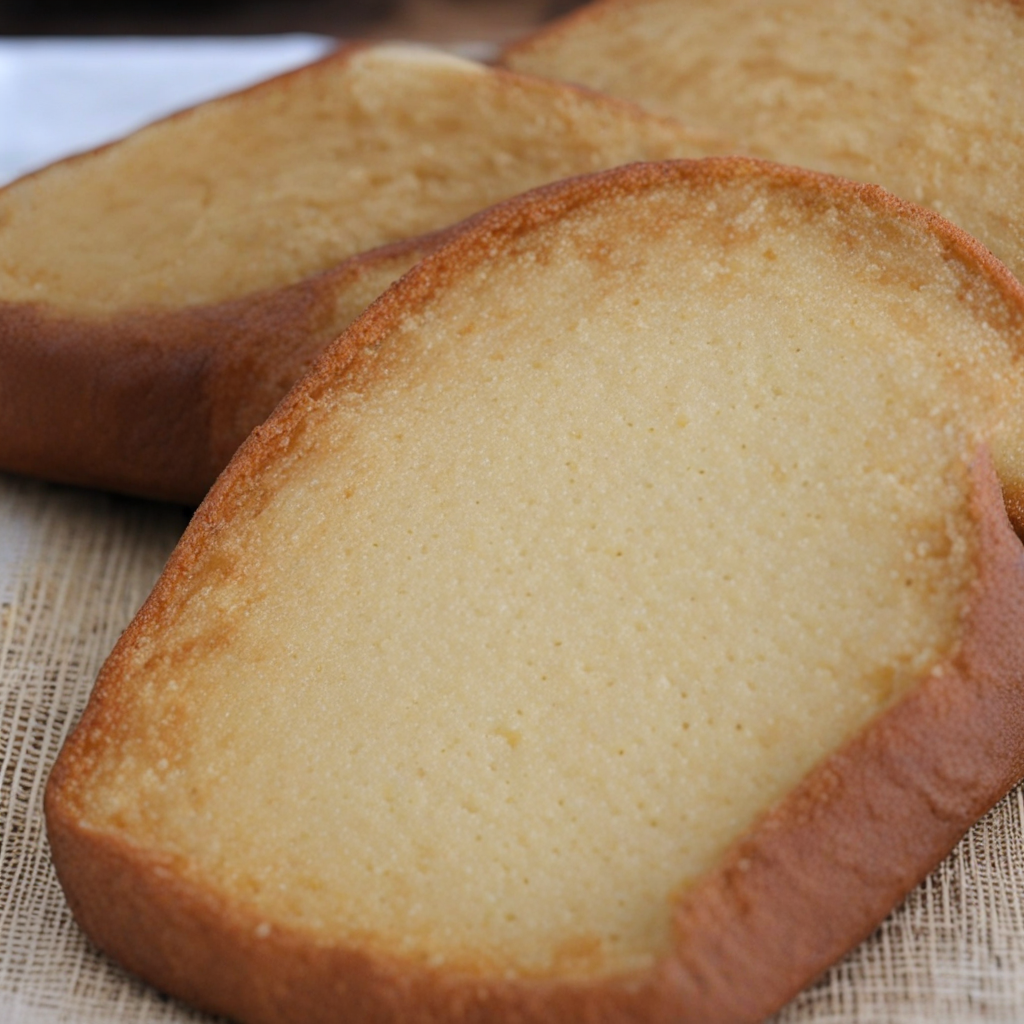Peanut Brittle
Peanut brittle is a delightful confectionery that hails from Ghana, exemplifying the country’s rich tradition of sweet treats. This crunchy snack is made primarily from roasted peanuts and a caramelized sugar syrup, creating a perfect marriage of nutty and sweet flavors. Each bite offers a satisfying crunch that gives way to the buttery richness of the peanuts, providing a wonderful contrast to the sweetness of the caramel. The use of locally sourced peanuts enhances the flavor, making it a true representation of Ghanaian culinary culture. In Ghana, peanut brittle is often enjoyed as a snack or dessert, frequently accompanying festive occasions and gatherings. Its simplicity in ingredients belies the depth of flavor that comes from the careful cooking of sugar to just the right point, ensuring that it is neither too soft nor overly hard. The addition of a pinch of salt can elevate the taste, highlighting the natural sweetness of the sugar and the earthiness of the peanuts, creating a well-balanced treat that tantalizes the taste buds. This delightful snack is not only a staple in Ghana but has also made its way into the hearts of many food lovers around the world. The process of making peanut brittle in Ghana often involves traditional methods that have been passed down through generations, adding a layer of authenticity to every piece. Whether enjoyed on its own, shared with friends, or used as an ingredient in other desserts, Ghanaian peanut brittle is a unique taste experience that beckons to be savored.
How It Became This Dish
The History of Nkate Cake: A Culinary Gem from Ghana Nkate Cake, a cherished treat in Ghana, is not just a delightful snack; it is a symbol of Ghanaian culture, community, and tradition. This nutty confection, made predominantly from groundnuts (peanuts), sugar, and sometimes honey or spices, is deeply embedded in the social fabric of various Ghanaian communities. Its rich history tells a tale of agricultural abundance, cultural exchange, and the evolution of culinary practices over time. #### Origins: The Birth of Nkate Cake The origins of Nkate Cake can be traced back several centuries when peanuts were first introduced to West Africa. Believed to have been brought to the region by Portuguese traders in the 16th century, groundnuts quickly adapted to the local climate and became a staple crop in countries like Ghana. As local farmers cultivated peanuts, they discovered their versatility, leading to the creation of various dishes, including Nkate Cake. Initially, Nkate Cake was a simple snack made by grinding roasted peanuts and mixing them with sugar. The process was labor-intensive, requiring the use of mortar and pestle to achieve the desired consistency. The result was a sweet, chewy treat that quickly gained popularity among local populations. Nkate Cake was often prepared during festive occasions, family gatherings, and communal celebrations, symbolizing unity and sharing within communities. #### Cultural Significance Nkate Cake holds significant cultural importance in Ghana. It is often associated with traditional celebrations, such as weddings, festivals, and religious ceremonies. In many communities, Nkate Cake is given as a gift to symbolize goodwill and hospitality. The act of sharing this delectable treat fosters social bonds and strengthens relationships among families and friends. Moreover, Nkate Cake serves as a source of nutrition. Rich in protein and healthy fats, it provides energy to those who consume it, making it a popular snack among farmers and laborers who require sustenance for their hard work. In this sense, Nkate Cake is more than just a treat; it embodies the resilience and resourcefulness of the Ghanaian people. #### Development Over Time As Ghana's economy and culinary landscape evolved, so too did Nkate Cake. The late 20th century saw a surge in urbanization and globalization, which brought about changes in food preparation and consumption patterns. While traditional methods of making Nkate Cake persisted in rural areas, urban centers began to witness the emergence of modern variations that incorporated different ingredients and techniques. Innovative Ghanaians began experimenting with Nkate Cake, adding flavors such as coconut, ginger, and various spices to enhance its taste. In some cases, bakers replaced sugar with honey or syrup to cater to health-conscious consumers. This adaptability allowed Nkate Cake to remain relevant in contemporary Ghanaian society, appealing to both traditionalists and modern palates alike. Additionally, the commercialization of Nkate Cake opened new avenues for local entrepreneurs. Small-scale manufacturers began producing packaged Nkate Cake, allowing it to reach a broader audience both locally and internationally. As a result, Nkate Cake has transcended its humble beginnings, becoming a beloved snack not only in Ghana but also among the Ghanaian diaspora around the world. #### Nkate Cake in the Global Context With the rise of global cuisine and interest in international foods, Nkate Cake has garnered attention from food enthusiasts beyond Ghana's borders. Culinary festivals, food blogs, and social media platforms have introduced Nkate Cake to a wider audience, showcasing its unique flavor and cultural significance. This global exposure has led to the revitalization of interest in traditional Ghanaian foods, encouraging a new generation to appreciate and preserve their culinary heritage. Furthermore, the increasing popularity of plant-based diets and natural snacks has positioned Nkate Cake as an appealing option for health-conscious consumers. Its ingredients, primarily groundnuts and sweeteners, align with contemporary dietary trends emphasizing whole, unprocessed foods. As more people seek authentic and nutritious snacks, Nkate Cake stands poised to maintain its relevance in the ever-evolving food landscape. #### Nkate Cake and Modern Gastronomy In the realm of modern gastronomy, Nkate Cake has found its place alongside other international snacks. Chefs and home cooks alike have incorporated it into innovative dishes, using it as a base for desserts, toppings for ice cream, or as a crunchy element in salads. This creative approach not only honors the traditional recipe but also reimagines Nkate Cake in ways that resonate with contemporary dining experiences. Moreover, the resurgence of interest in indigenous ingredients and traditional foods has prompted a reevaluation of Nkate Cake's role in Ghanaian cuisine. As chefs experiment with local flavors, Nkate Cake becomes a canvas for creativity, showcasing the bounty of Ghana's agricultural heritage. This renaissance of traditional foods underscores the importance of preserving culinary traditions while embracing innovation. #### Conclusion: A Sweet Legacy Nkate Cake is more than just a delightful snack; it is a testament to the resilience, creativity, and communal spirit of the Ghanaian people. From its humble origins as a simple treat to its current status as a beloved cultural artifact, Nkate Cake represents the rich tapestry of Ghanaian food history. As it continues to evolve and adapt to changing times, Nkate Cake remains a sweet reminder of the importance of tradition, community, and the shared joy of good food. As Ghana navigates the complexities of globalization and modernity, Nkate Cake serves as a bridge connecting generations, cultures, and culinary practices. It embodies the essence of Ghanaian hospitality and the importance of sharing food as a means of fostering connections. In every bite of Nkate Cake, one can taste the history, culture, and love that have been woven into this iconic Ghanaian delicacy, ensuring its legacy endures for generations to come.
You may like
Discover local flavors from Ghana


